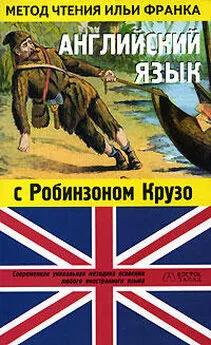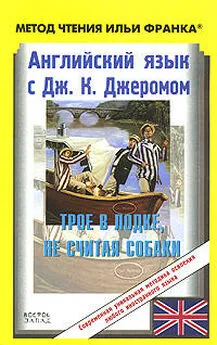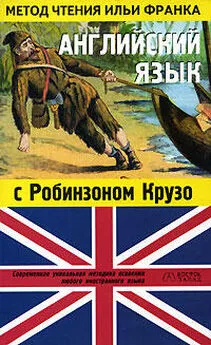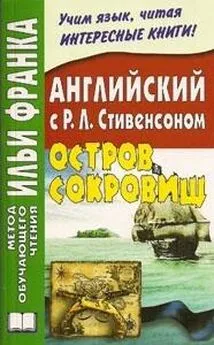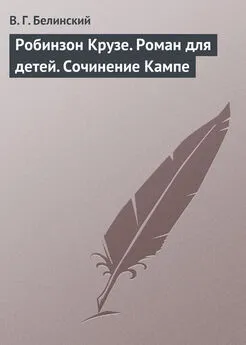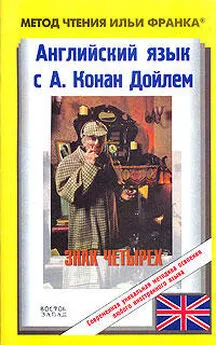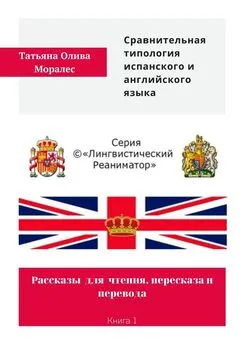James Baldwin - Английский язык с Робинзоном Крузо (в пересказе для детей) (ASCII-IPA)
- Название:Английский язык с Робинзоном Крузо (в пересказе для детей) (ASCII-IPA)
- Автор:
- Жанр:
- Издательство:неизвестно
- Год:неизвестен
- ISBN:нет данных
- Рейтинг:
- Избранное:Добавить в избранное
-
Отзывы:
-
Ваша оценка:
James Baldwin - Английский язык с Робинзоном Крузо (в пересказе для детей) (ASCII-IPA) краткое содержание
Английский язык с Робинзоном Крузо (в пересказе для детей)
Robinson Crusoe Written Anew for Children by James Baldwin
Необыкновенно простой язык. C этой книги хорошо начинать читать по-английски.
Текст адаптирован (без упрощения текста оригинала) по методу Ильи Франка: текст разбит на небольшие отрывки, каждый и который повторяется дважды: сначала идет английский текст с «подсказками» — с вкрапленным в него дословным русским переводом и лексико-грамматическим комментарием (то есть адаптированный), а затем — тот же текст, но уже неадаптированный, без подсказок.
Начинающие осваивать английский язык могут при этом читать сначала отрывок текста с подсказками, а затем тот же отрывок — без подсказок. Вы как бы учитесь плавать: сначала плывете с доской, потом без доски. Совершенствующие свой английский могут поступать наоборот: читать текст без подсказок, по мере необходимости подглядывая в подсказки.
Запоминание слов и выражений происходит при этом за счет их повторяемости, без зубрежки.
Кроме того, читатель привыкает к логике английского языка, начинает его «чувствовать».
Этот метод избавляет вас от стресса первого этапа освоения языка — от механического поиска каждого слова в словаре и от бесплодного гадания, что же все-таки значит фраза, все слова из которой вы уже нашли.
Пособие способствует эффективному освоению языка, может служить дополнением к учебникам по грамматике или к основным занятиям. Предназначено для студентов, для изучающих английский язык самостоятельно, а также для всех интересующихся английской культурой.
Мультиязыковой проект Ильи Франка: www.franklang.ru
От редактора fb2. Есть два способа оформления транскрипции: UTF-LATIN и ASCII-IPA. Для корректного отображения UTF-LATIN необходимы полноценные юникодные шрифты, например, DejaVu или Arial Unicode MS. Если по каким либо причинам вас это не устраивает, то воспользуйтесь ASCII-IPA версией той же самой книги (отличается только кодированием транскрипции). Но это сопряженно с небольшими трудностями восприятия на начальном этапе. Более подробно об ASCII-IPA читайте в Интернете:
http://alt-usage-english.org/ipa/ascii_ipa_combined.shtml
http://en.wikipedia.org/wiki/Kirshenbaum
Английский язык с Робинзоном Крузо (в пересказе для детей) (ASCII-IPA) - читать онлайн бесплатно полную версию (весь текст целиком)
Интервал:
Закладка:
Friday ['fraIdeI, 'fraIdI], pursue [p@'sju:], dead [ded], really ['rI(@)lI], pretend [prI'tend], body ['bOdI], forehead ['fOrId], nose ['n@uz], teeth [ti:T], ivory ['aIv(@)rI], olive ['OlIv], color ['kVl@], quick [kwIk], talk [tO:k], blood [blVd], bury ['berI], linen ['lInIn], trousers ['trauz@z], because [bI'kO:z], faithful ['feITf(@)l]
THE savage spoke to me. I could not understand his words, but they were very pleasant to hear. For it had now been more than twenty-five years since I had heard the sound of a man's voice. He pointed to the two savages who had been pursuing him. They were lying on the ground where they had fallen. Both were quite dead.
He could not understand how I had killed the second savage when he was so far away from me. He made signs that I should let him see whether his enemy was really dead or only pretending to be so.
I told him, as well as I could, that he might go to him. He ran to the fallen savage and looked at him. He turned him first on one side and then on the other. He seemed very much puzzled.
Then he picked up the savage's bow and arrows and brought them to me.
I turned to go back to my castle and beckoned him to follow me.
He stood quite still for a moment and then pointed again to the bodies on the ground. By signs he asked me if he might bury them, lest the other savages should come up and find them there. I answered by signs and gave him leave.
The work was quickly done. With a sharp stick and his big hands he soon dug two big holes in the sand. He laid the bodies in them and covered them up. Then he smoothed the sand and patted it down so that no one could see that it had been touched.
Having thus put the two savages out of sight he turned to me again. I motioned him to follow me. But on second thought I did not go back to the castle. I led him far into the woods, to my new cave of which I have told you.
Once inside of that cave, I felt safe.
I gave the poor fellow some bread and a bunch of raisins to eat. I gave him also a drink of water from a jug, and he was so thirsty from running that he came near drinking it all.
Then I showed him a place where I had put some rice straw with a blanket over it. It was quite a good bed, and I myself had sometimes slept upon it.
He seemed to know that I meant for him to lie down there and rest. Soon he was fast asleep.
He was a handsome fellow. He was tall but not too large.
His hair was long and black. His forehead was high and broad. His eyes were very bright.
His face was round and plump. His nose was well shaped. His lips were thin. His teeth were white as ivory.
His skin was not black like that of an African. It was not yellow like that of some Indians. But it was a kind of olive color, very pleasant to look at.
After he had been asleep about an hour he awoke and came out of the cave where I was milking my goats. He made signs to show that he was glad to see me.
Then he laid his head flat down on the ground and set my foot upon it, as he had done before. This was his way of saying that he would do anything I wished.
I understood him and told him by signs that I was well pleased with him.
I spoke some simple words to him and tried to teach him what they meant. He was quick to learn and soon began to try to talk to me.
I named him FRIDAY, because it was on that day of the week that I had saved his life.
He soon learned to call me "Master," and to say "yes" and "no" in the right way.
In the evening I gave him an earthen pot with some milk in it, and showed him how to sop his bread in the milk. I also gave him a barley cake, which he ate as though it was very good.
All that night we stayed in the cave. But early the next morning I led him back to my castle.
My first care was to learn whether the savages had left the island. I climbed to the top of the rock and looked around with my spyglass.
I saw the place where the savages had been. I saw where they had built their fire. But they were not there. I could see no sign of them or of their canoes. It was plain that they had left the place.
I gave my man Friday one of my guns to carry. In his right hand he held my sword, and on his back were his bow and arrows.
I carried two guns myself. And thus armed we went boldly down to the beach.
The sand was red with blood, and bones and bits of flesh were scattered all around. These I caused Friday to gather up and bury.
We stayed on the beach for some time, but could find nothing more.
Friday gave me to understand that there had been three other prisoners in the boats with him. I had no doubt that the savages had killed and eaten them all.
The next day I made a tent for Friday to stay in. It was just inside of my castle wall and in front of the door into my own sleeping room.
As he had no clothes I set to work to make him a suit. I gave him some linen trousers which had belonged to one of our sailors, and which I had not worn because they were too small.
Then I made him a little jacket of goatskin, and from the skin of a rabbit I fashioned a very good cap that fitted his head quite well.
You should have seen him when he was clothed. He was very proud, but oh, so awkward!
He went around with a broad smile on his face. He tried to do everything that was pleasing to me.
And indeed I was much delighted with him. For no man ever had a more faithful servant.
I TEACH FRIDAY MANY THINGS
(я учу Пятницу многим вещам)
WHEN my man Friday had been with me three days I took him out hunting (когда мой слуга Пятница пробыл со мной три дня, я взял его на охоту) .
As we were going through some woods (когда мы шли через лес) , I saw a wild goat lying under a tree with two young kids sitting by her (я увидел дикую козу, лежащую под деревом с двумя молодыми козлятами, сидящими рядом с ней) . I caught hold of Friday (я схватил Пятницу) .
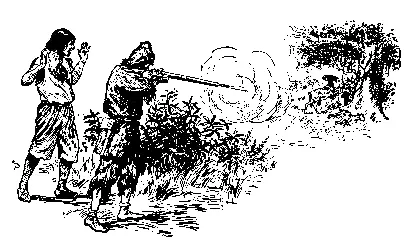
"Stop," I said. "Stand still (стой смирно) ."
Then I took aim at one of the kids (затем я прицелился в одного из козлят; to take aim — целиться: «брать цель») , shot and killed it (выстрелил и убил его; to shoot — стрелять) .
The noise of the gun so frightened the poor savage (шум ружья так испугал бедного дикаря) that he did not know what to do (что он не знал, что делать) . He shook like a leaf (он трясся как лист; to shake — трясти/сь/) . He thought that I was going to kill him (он подумал, что я собираюсь убить его) .
He did not see the kid I had shot (он не видел козленка, которого я застрелил) . He threw himself at my feet (он бросился к моим ногам; to throw — бросать) . Although I could not understand a word he said (хотя я не мог понять ни слова из того, что он говорил) , yet I knew that he was begging me to have pity on him (все же я знал = понял, что он просил меня иметь жалость к нему = помиловать его) .
And indeed I did pity him (и я в самом деле пожалел его) — he was so frightened (он был так напуган) .
I took him by the hand and lifted him up (я взял его за руку и поднял) . I laughed at him (я рассмеялся) and pointed to the kid that I had killed (и показал на козленка, которого я убил) . When he saw it and understood me (когда он увидел его и понял меня) , he ran to fetch it (он побежал подобрать его; to fetch — принести, достать; приносить убитую дичь /о собаке/) .
Going on through the woods (продолжая идти по лесу: «через лес») , I saw a big bird sitting on a tree (я увидел большую птицу, сидящую на дереве) . I thought it was a hawk (я подумал, что это ястреб/сокол) .
"See there, Friday (посмотри-ка, Пятница) !" I said, as I pointed to it (указывая на нее: «когда я указывал на нее») .
Bang (бам) ! went my gun (выстрелило: «пошло» мое ружье) . The bird fell to the ground (птица упала на землю; to fall — падать) . It was not a hawk, but a parrot (это был не ястреб, а попугай) .
Friday was amazed (Пятница был удивлен; to amaze — изумлять, поражать, удивлять) . He looked at the gun and trembled (он смотрел на ружье и дрожал) .
For a long time he would not touch a gun (долгое время он не хотел прикасаться к ружью) . He would look at it and talk to it (он смотрел на него и заговаривал с ним) . He would say, in his own language (он говорил на своем языке) : "O wonderful thing (о удивительная вещь) ! Do not kill me (не убивай меня) ! Do not kill me!"
We found nothing more in the woods that day (в тот день мы больше ничего не нашли в лесу) . Friday carried the kid home (Пятница отнес козленка домой) , and I took off its skin and dressed it (а я снял с него шкуру и приготовил/приправил его; to dress — готовить /что-л. для использования/; ; готовить, приправлять /еду/) . Then I stewed some of the best pieces (затем я потушил несколько лучших кусков) and made some good broth (и приготовил хорошую похлебку) .
At dinner I gave some of the broth to my man (во время обеда я дал немного похлебки моему слуге) . He liked it very well (она ему очень понравилась) , but he could not bear salt in it (но он не мог выносить соль в ней) .
I tried to show him that food was best with a little salt (я попытался показать ему, что пища была лучше с небольшим количеством соли = если приправить ее немного солью) . But he did not think so (но он так не думал) , and he would never eat meat that was salted (и никогда не хотел есть мясо, которое было посолено) .
The next day I set Friday to work (на следующий день я дал Пятнице работу; to set — сажать; засаживать /кого-л. за работу/, поручать, заставлять /что-л. делать/) . I had him thrash some barley for me (я заставил его молоть ячмень вместо меня) and grind the grains into meal (и молоть зерно в муку) as I had always done (как я всегда делал) .
Читать дальшеИнтервал:
Закладка:
